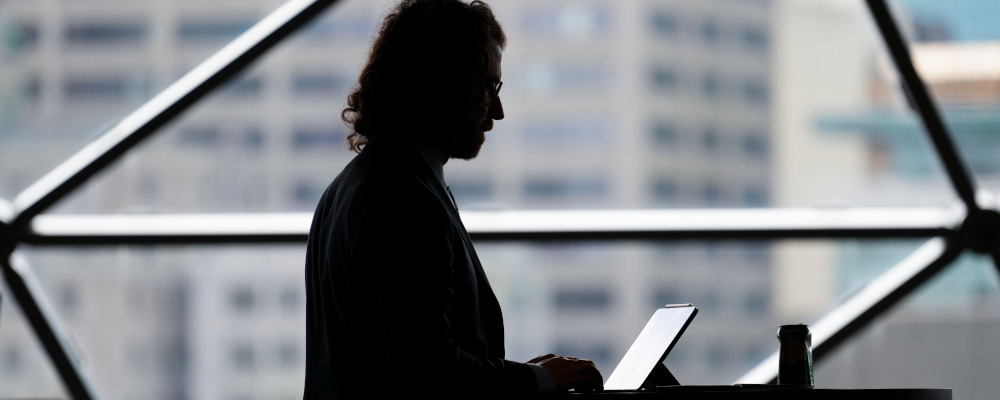The internet is an ugly place. A few days ago, my colleagues gave me a heads-up that a Twitter account was calling me out as a [sic] “Caucozoidic Jew” in charge of a “Jew charity.” I take the word “Caucozoidic” to mean I’m a fair-skinned Jew. The latter part is a bit more confusing because the charity I direct has no religious or ethnic affiliations. I laughed and blocked the account, but the Liberals’ newly proposed law suggests that not acting on these kinds of tweets could leave Elon Musk on the hook for 6 percent of X’s global revenues.
That’s just one example of the absurdities that could result if Minister of Justice Arif Virani’s revamped Online Harms Act passes in Parliament. Bill C-63 is aimed at regulating a wide swath of undesirable online conduct, from child sexual exploitation material— already criminalized— to the more amorphous “content that foments hatred.”
The Liberals’ decision to deal with this range of conduct in one fell swoop perhaps distracts from the reality that the Online Harms Act is a profoundly anti-free expression bill that threatens draconian penalties for online speech, chilling legitimate expression by the mere spectre of a complaint to the Canadian Human Rights Commission or the new Digital Safety Commission of Canada.

The bill beefs up criminal penalties for instances of hate speech and creates a new standalone “offence motivated by hatred.” The hate crime of “advocating genocide,” previously punishable by up to five years’ imprisonment, now carries a possibility of life imprisonment. Advocating genocide is evil, but it’s stunning to think someone in a free society could spend life in prison for their words.
Previously, a finding that a crime was motivated by hate could be considered as an aggravating factor in sentencing. Now, an “offence motivated by hatred” is a separate offence, which can be charged and prosecuted by police and prosecutors. Virani proudly touted this new standalone offence as allowing offences motivated by hate to be charged “on the front end” suggesting the government is signalling to law enforcement to seek, charge, and prosecute more such crimes.
Even worse, the bill provides a preventative criminal restraint on suspected future speech: anyone with the attorney general’s consent can request that a judge order a 12-month “recognizance to keep the peace” if they have reasonable grounds to suspect that someone might commit hate speech in the future. If they agree, they can be subject to major restrictions on liberty such as giving a bodily sample, refraining from drugs and alcohol, and wearing an ankle monitor. If they refuse, they can be imprisoned.
The bill also brings back a civil remedy for communicating alleged instances of hate speech in the form of reviving the dreaded section 13 of the Canadian Human Rights Act, specifying that such instances constitute discrimination and are liable to be investigated by the Canadian Human Rights Tribunal. The tribunal will expand to as many as 20 government-appointed bureaucrats tasked with policing allegations of harmful speech. Even if most alleged instances are dismissed as not meeting the threshold of hate speech, the penalties for individuals found liable—up to $50,000 paid to the government plus $20,000 paid to the victim—are severe enough that we can infer the new regime will lead to large amounts of backpedalling and self-censorship by people accused of crossing the line. We will also see more people punished for their speech, considering that s. 13 creates a civil offence that need only be proved on a “balance of probabilities,” which is much easier than meeting the criminal law’s more stringent threshold of “beyond a reasonable doubt.”
The bill makes extensive use of what has been called “jawboning”—delegating to and pressuring social media platforms to themselves take steps to police their users. Platforms are tasked with a “duty to act responsibly” and minimize harms to users. They must provide a mechanism for users to flag “harmful content,” which is defined as including speech that “foments hatred.” As a sop to free-expression concerns, the bill clarifies that platforms may limit users’ free expression—just not “disproportionately.” If platforms don’t comply with the bill’s stipulations, they are on the hook for $10M in fines or 6 percent of global revenues—whichever is higher.
The press conference outlining Bill C-63 was led off, somewhat unusually, not by the Minister but by a woman whose toddler was the victim of tragic sexual abuse filmed and disseminated online. Her harrowing testimony foregrounded some of the bill’s priorities, which are obviously laudable. That said, viewing or distributing child sexual exploitation material is already strictly criminalized. It’s also good news that the only harmful content that must be removed within 24 hours is child sexual exploitation material and revenge porn. The earlier iteration of the bill that died on the order paper in 2021 also required alleged hate speech to be taken down within 24 hours. This positive development is not surprising considering Germany’s attempts to impose takedown requirements on alleged hate speech have resulted in over-enforcement by platforms and a chill on edgy-but-legal speech.
But the Liberals’ decision to highlight the woman’s story as the kernel of the bill’s motivation reveals their broader strategy to merge two very different types of social ills which merit two different legislative responses. Child sexual exploitation is evil and should be subject to a strict zero-tolerance approach. Platforms have increasingly sophisticated algorithms for detecting and flagging it, and police have specialized training in investigating it. It is indeed appropriate to act decisively to ensure the physical and psychological safety of children online, but that should not be tied to laws that severely restrict speech.

Online hate speech is categorically different, amorphous, and unavoidably subjective. The bill adopts the Supreme Court’s definition of hate speech, described as speech that is “likely to foment detestation or vilification.” But “detestation” is really just a synonym for “hate,” and “vilification” is also a highly subjective concept. On the Left, calling someone a TERF (Trans Exclusionary Radical Feminist) is a form of vilification, while on the Right, some wear the term as a badge of honour. Just last week, Toronto Star columnist Shree Paradkar penned a morally abhorrent column defending Hamas as a legitimate governing force this week and was promptly called a terror apologist on X. Did Paradkar’s critics vilify her? Conversely, did the Toronto Star vilify Jews and Israelis? It’s in the eye of the beholder.
Though these statements arguably constitute vilification, it’s unlikely that any of these allegations would end up being investigated as hate crimes. Nevertheless, it’s also difficult to put your finger on the line that separates them from criminal hate speech, which, as I mentioned, now poses possible penalties of life imprisonment in the case of advocating genocide and, for social media companies, potentially millions of dollars in fines. This lack of clarity poses a real threat to online discourse, which should brook passionate and adversarial disagreements. When these kinds of sanctions are in play, everyone has an incentive to err on the side of caution.
The Liberals have dealt with both, though, in the same heavy-handed manner. It seems to be the only mode this government knows.




